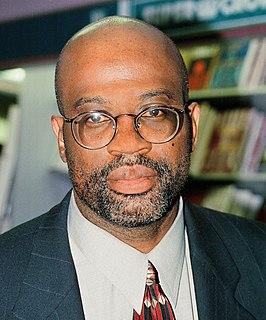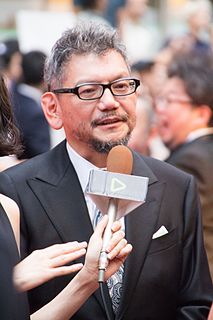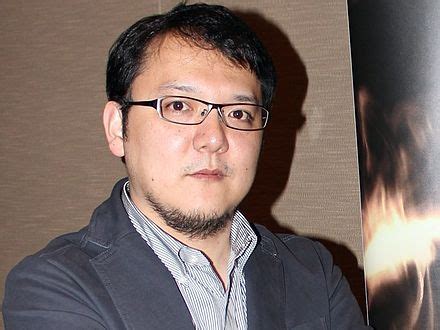A Quote by Christopher Darden
In fact, some reviewers have said that as they got into the story they forgot that the protagonist is a black woman. They were moved by the story - by the people as a whole - and not by the little things.
Related Quotes
I don't think it's a bad thing to play a character that's not necessarily a super-woman. Even if the character is a little bit stereotypical, as long as the whole story is good and positive, or makes some sort of important statement, I think it's okay. But, on the whole, you can't just do that, especially as a black woman. It's more of a responsibility. You've gotta let the world see black women being successful, strong, smart, with power and who are self-possessed.
There is a problem in America. An Irish or Polish American can write a story and it's an American story. When a Black American writes a story, it's called a Black story. I take exception to that. Every artist has articulated to his own experience. The problem is that some people do not see Blacks as Americans.
Also, getting the chance to play a supporting part meant that I didn't have to do as much as the protagonist, such as running around telling the story. [As the protagonist] you push the story whereas, paradoxically, as a character part, you have a chance to explore some of the nuance and some of the more complicated aspects of a character.
Some people ask why we don't just wait until we have the whole story before posting. The fact is that we sometimes can't get to the end story without going through this process... When a story is up and posted, it's amazing how many people come out of the woodwork to give us additional information... And readers love it.
Eva is a story of repetition. It is a story where our protagonist faces the same situation many times over and determinedly picks himself back up again. It is a story of the will to move forward, even if only a little. It is a story of the resolve to want to be together, even though it is frightening to have contact with others and endure ambiguous loneliness. I would be most gratified if you found enjoyment in these four parts as it takes the same story and metamorphoses it into something different.
Maybe instead of strings it's stories things are made of, an infinite number of tiny vibrating stories; once upon a time they all were part of one big giant superstory, except it got broken up into a jillion different pieces, that's why no story on its own makes any sense, and so what you have to do in a life is try and weave it back together, my story into your story, our stories into all the other people's we know, until you've got something that to God or whoever might look like a letter, or even a whole word.
If the point of life is the same as the point of a story, the point of life is character transformation. If I got any comfort as I set out on my first story, it was that in nearly every story, the protagonist is transformed. He's a jerk at the beginning and nice at the end, or a coward at the beginning and brave at the end. If the character doesn't change, the story hasn't happened yet. And if story is derived from real life, if story is just condensed version of life then life itself may be designed to change us so that we evolve from one kind of person to another.
In a long story like 'Weathercraft,' it becomes kind of convoluted. It can become perhaps difficult to remember what led up to whatever point you're at. I worried a little bit about people being able to keep the shape of the story in their heads while they were reading it, and not wonder how they got wherever they were.




































